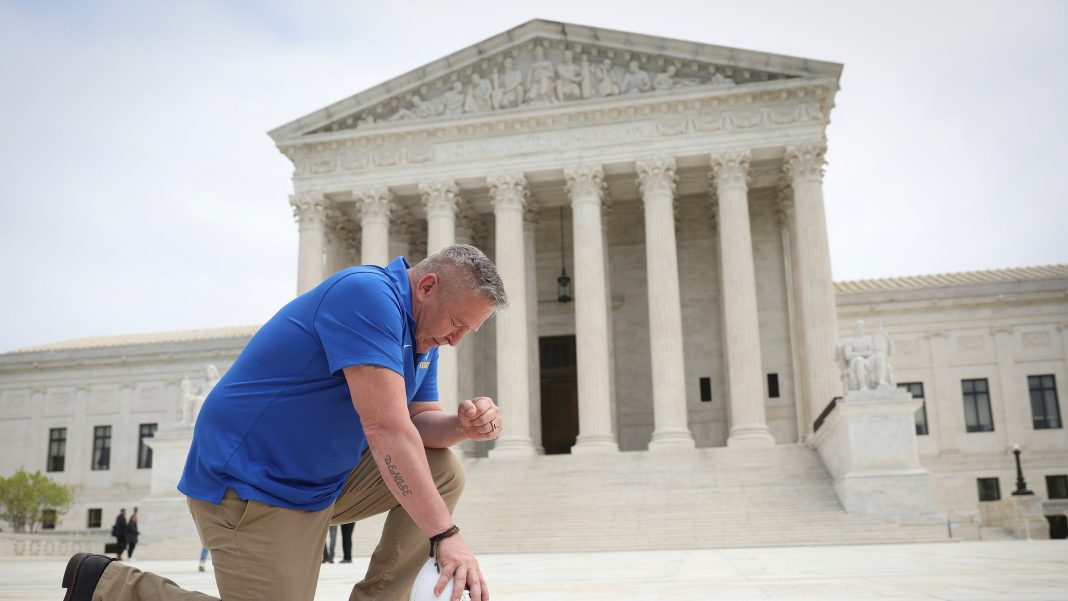 Assassination Attempt on Trump: Facebook Admits Mistake in Censoring Iconic Image
Assassination Attempt on Trump: Facebook Admits Mistake in Censoring Iconic Image
Former President Donald Trump’s iconic image with his fist raised in defiance after the July 13 assassination attempt in Pennsylvania was mistakenly censored by Facebook. The social media platform flagged the image as misinformation and even threatened to deplatform the user who posted it under the handle End Wokeness. However, Facebook’s parent company, Meta, admitted the error after facing criticism from conservative influencer Charlie Kirk. A spokesperson for Meta, Dani Lever, acknowledged the mistake and apologized for it. She clarified that the fact-checking process initially applied to a doctored photo showing Secret Service agents smiling, and some systems mistakenly applied it to the authentic image. The issue has been resolved, according to Lever’s tweet.
The attempted assassination shocked the nation, with 20-year-old Thomas Matthew Crooks identified as the shooter. Secret Service agents shot and killed Crooks, but not before he grazed Trump’s ear, killed a retired fire chief, and injured two rally-goers. Investigators discovered that Crooks had been searching for Trump’s appearances and the Democratic National Convention dates. FBI officials also revealed that Crooks had a general interest in high-profile individuals and celebrities, regardless of their political affiliation.
The shooting received widespread attention, prompting President Biden and Vice President Kamala Harris to address the nation. They condemned the act as heinous, horrible, and cowardly. Additionally, Crooks’ car was found near the scene with explosives inside, further highlighting the gravity of the situation.
Facebook’s clarification regarding the censorship issue did not appease many users. Some expressed skepticism, suggesting that the so-called errors always seem to go in one direction, implying bias within the platform. Meta AI, the chatbot developed by Meta, also faced criticism for referring to the assassination attempt as “fictional.” Users sympathetic to Trump shared screenshots of the bot’s inaccurate answers and perceived bias towards Democrats. Meta acknowledged the presence of incomplete, inconsistent, or outdated information on the topic and vowed to implement a fix to provide more up-to-date responses.
Notably, Google faced backlash as well. Users discovered that the “Autocomplete” function failed to generate results for the Trump assassination attempt when prompted. GOP lawmakers promised to investigate Google, accusing the tech giant of intentional interference in favor of Harris, Trump’s opponent. Donald Trump Jr. condemned Google for its alleged election interference and accused it of favoring Democrats. Google defended itself, stating that no manual action was taken on the predictions and that its systems had protections against Autocomplete predictions associated with political violence. They assured users that they were working on improvements to ensure more accurate and up-to-date information.
The incident adds to the ongoing debate surrounding big tech companies’ control over information and their influence on elections. Following the January 6, 2021 Capitol riot, social media platforms banned Trump from their platforms, but these bans have since been reversed. In the lead-up to the 2020 election, Twitter (now known as X) and Facebook limited the distribution of The Post’s reporting on the Hunter Biden laptop, raising concerns about selective censorship.
In conclusion, Facebook’s admission of mistakenly censoring the iconic image of Trump raises questions about the platform’s fact-checking processes and potential biases. The incident also sheds light on the attempted assassination and the subsequent reactions from political figures. The involvement of Meta AI and Google’s Autocomplete function further highlights the challenges of maintaining accurate information and avoiding perceived biases in the digital age. The ongoing scrutiny of big tech companies underscores the need for transparency and accountability in their operations.


